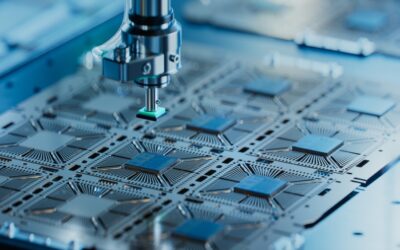An Insightful Probe into the Transformation of the Manufacturing Landscape through Digitization and Connectivity
In the digital transformation era, manufacturing engineering is undergoing a profound metamorphosis. The advent of Industry 4.0, defined by its hallmark traits of interconnectivity, automation, machine learning, and real-time data, is fueling this change. This article seeks to provide engineering professionals with a comprehensive insight into this hot topic, demonstrating how Industry 4.0 is reshaping the manufacturing industry and what it means for the engineers of the future.
Understanding Industry 4.0
Industry 4.0, or the fourth industrial revolution, represents a new phase in the industrial revolution that focuses heavily on interconnectivity, automation, machine learning, and real-time data. It marries physical production and operations with smart digital technology, machine learning, and big data to create a more holistic and better-connected ecosystem for companies focusing on manufacturing and supply chain management.
Key Elements of Industry 4.0
Four primary technological advancements underpin Industry 4.0:
- Internet of Things (IoT): IoT devices are connected to the internet and can communicate with each other, making automated and remote control of manufacturing processes possible.
- Artificial Intelligence (AI) and Machine Learning (ML): AI and ML provide the ability to analyze large amounts of data for decision-making and can learn and improve from experience without being explicitly programmed.
- Cyber-Physical Systems (CPS): These systems are integrations of computation, networking, and physical processes, allowing interaction between the physical and virtual worlds.
- Cloud Computing: It provides data storage and management infrastructure, giving easy access to vast amounts of data and computational resources.
How Industry 4.0 is Reshaping Manufacturing
Industry 4.0 is bringing about paradigm shifts in the manufacturing industry:
Efficiency and Productivity: Advanced automation and robotics, powered by AI and ML, significantly reduce manual intervention, reducing errors and increasing productivity. Real-time data analytics allows for predictive maintenance, minimizing downtime.
Customization: Industry 4.0 technologies enable mass customization. Manufacturers can tailor products to individual customer needs while maintaining high volumes and low costs.
Supply Chain and Inventory Management: IoT and AI-powered systems provide real-time tracking and forecasting, optimizing inventory management and streamlining the supply chain.
Worker Safety: Smart wearables and automated systems enhance worker safety by reducing the need for human involvement in hazardous environments.
Navigating the Industry 4.0 Landscape
The journey to Industry 4.0 demands a new skill set. Engineers must have a firm grasp of the underlying technologies and their applications. Equally important is the understanding of cybersecurity, given the increased digital connectivity. Soft skills, such as problem-solving, adaptability, and teamwork, also gain significance in this new landscape.
A New Dawn
The advent of Industry 4.0 marks a new dawn in manufacturing engineering, offering unprecedented opportunities for efficiency, productivity, and innovation. The shift towards a digital, interconnected manufacturing ecosystem is underway, and those who can adapt to and harness these changes will lead the field. As manufacturing engineers, it’s imperative to embrace this digital revolution, upskill, and innovate to create a smarter, more efficient, and inclusive manufacturing world. The future of manufacturing is here, and it’s digital.




